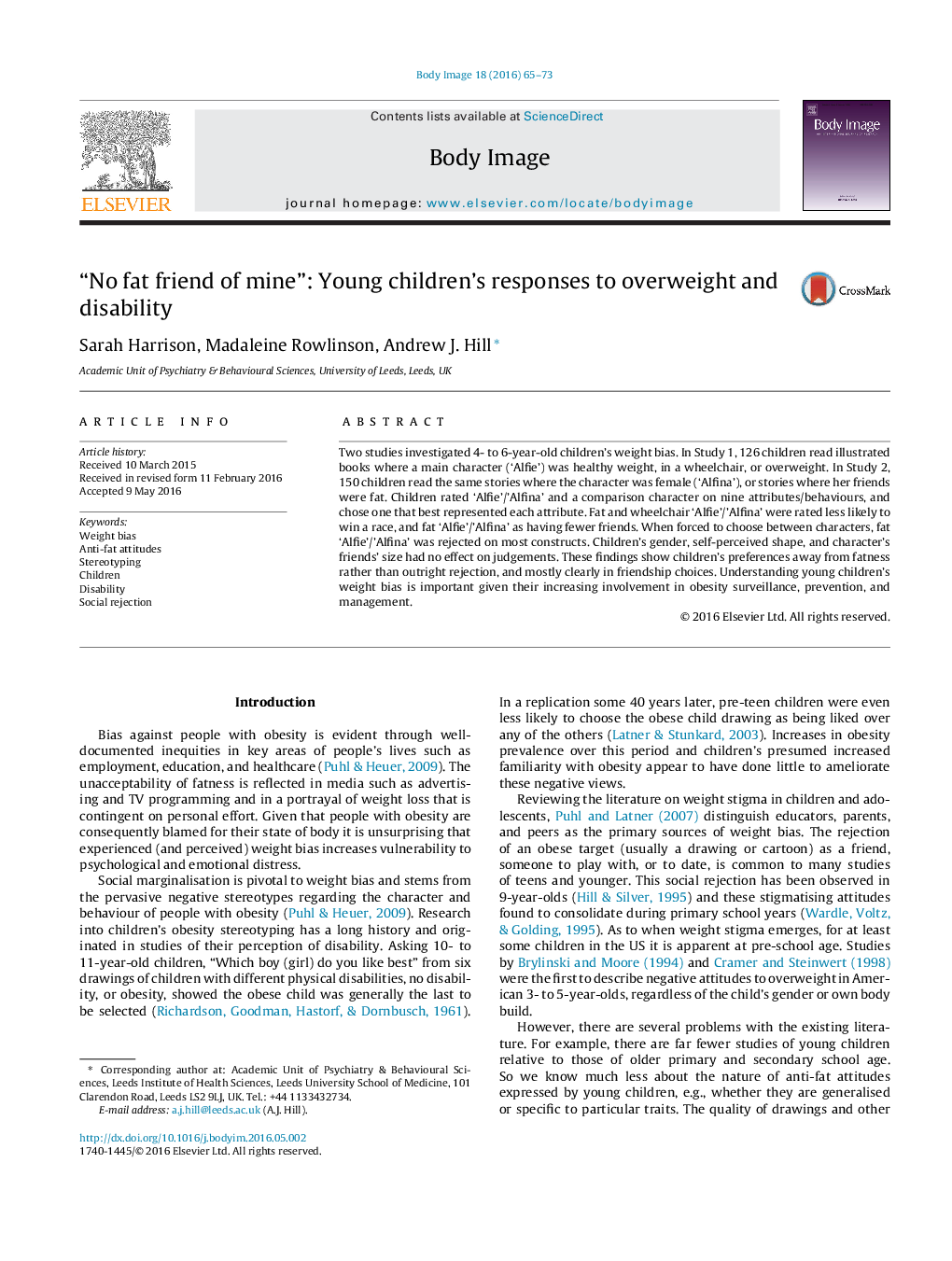| Article ID | Journal | Published Year | Pages | File Type |
|---|---|---|---|---|
| 902698 | Body Image | 2016 | 9 Pages |
•Young children were negative in judgments of visibly different story characters.•The fat character was judged more negatively than one in a wheelchair.•Children's ratings showed differences in preference rather than outright rejection.•Negativity most evident in social (party invitation, friend, best friend) judgments.•Judgements unaffected by children's gender or body size of the character's friends.
Two studies investigated 4- to 6-year-old children's weight bias. In Study 1, 126 children read illustrated books where a main character (‘Alfie’) was healthy weight, in a wheelchair, or overweight. In Study 2, 150 children read the same stories where the character was female (‘Alfina’), or stories where her friends were fat. Children rated ‘Alfie’/’Alfina’ and a comparison character on nine attributes/behaviours, and chose one that best represented each attribute. Fat and wheelchair ‘Alfie’/’Alfina’ were rated less likely to win a race, and fat ‘Alfie’/’Alfina’ as having fewer friends. When forced to choose between characters, fat ‘Alfie’/’Alfina’ was rejected on most constructs. Children's gender, self-perceived shape, and character's friends’ size had no effect on judgements. These findings show children's preferences away from fatness rather than outright rejection, and mostly clearly in friendship choices. Understanding young children's weight bias is important given their increasing involvement in obesity surveillance, prevention, and management.
